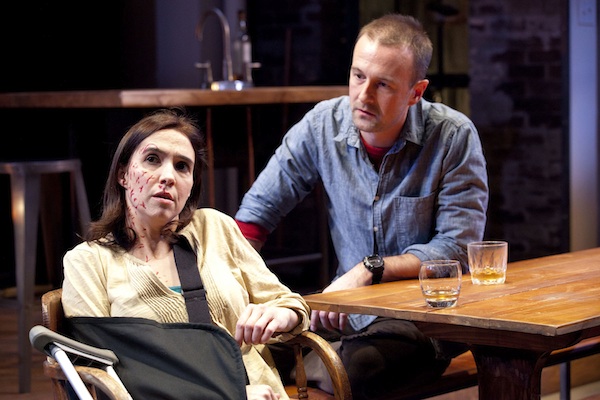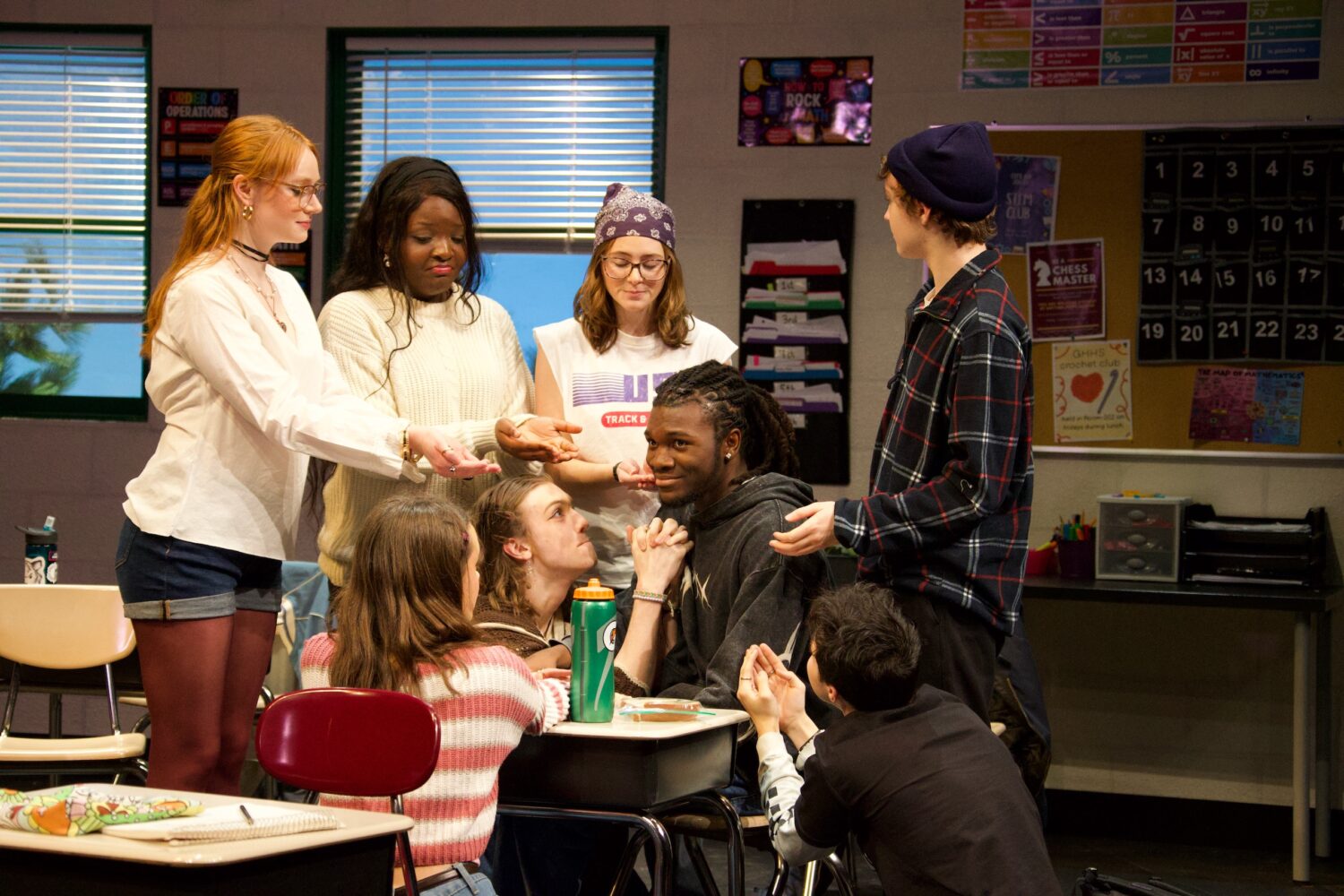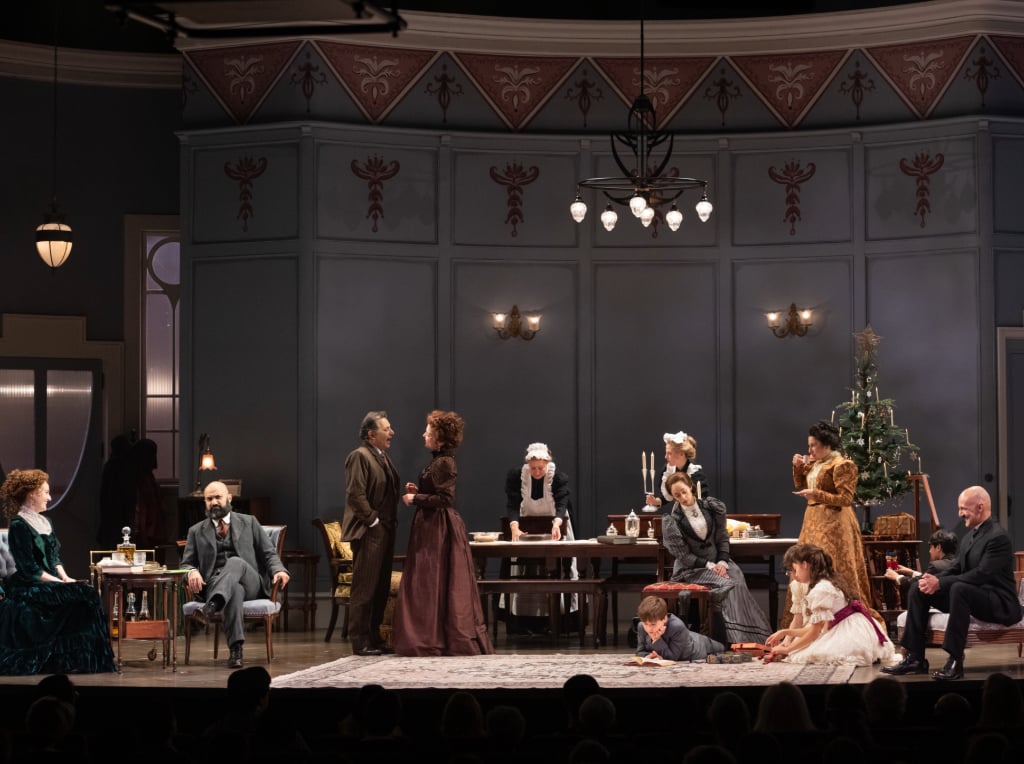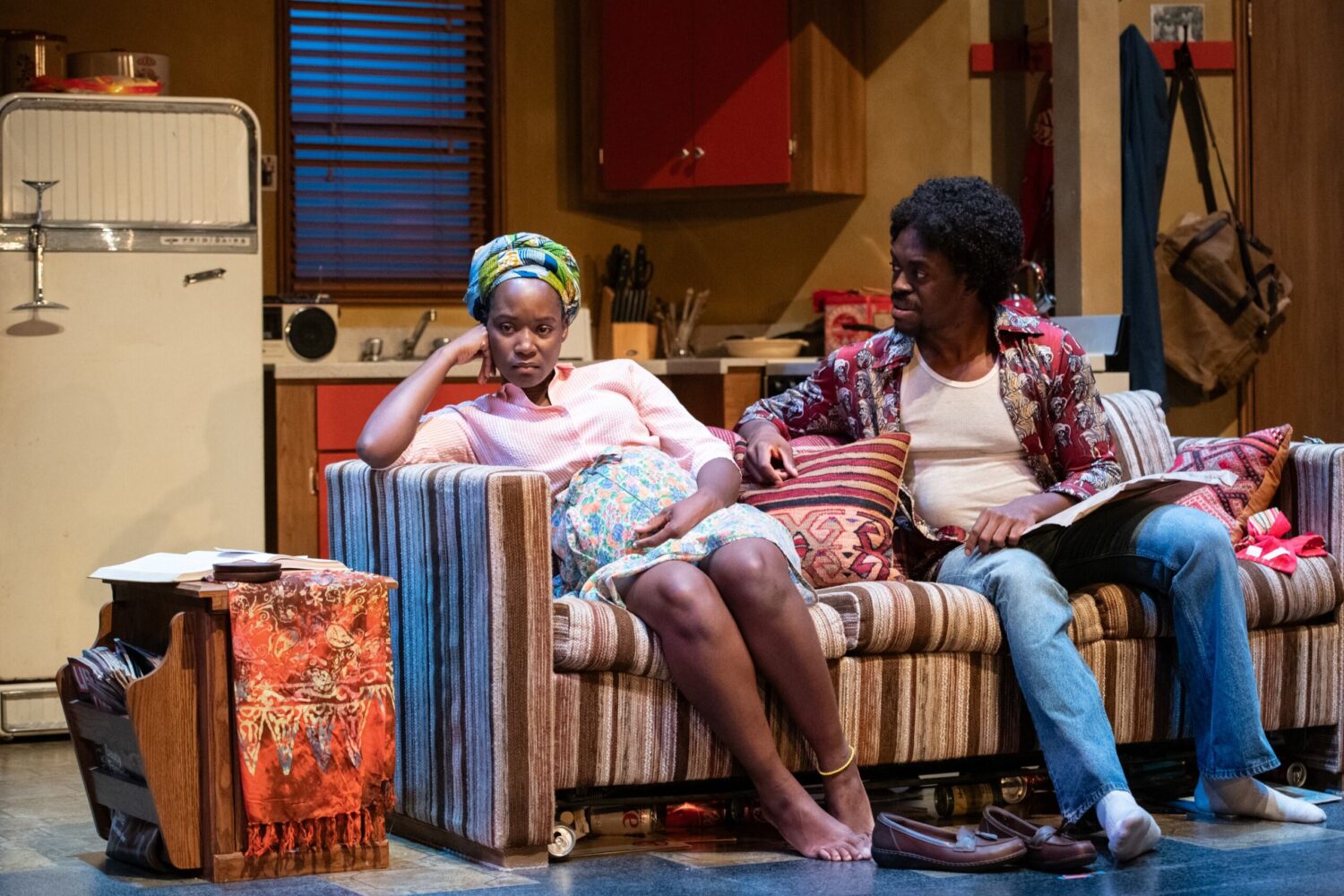Holly Twyford and Greg McFadden in Studio Theatre’s Time Stands Still. Photograph by Scott Suchman.
☆☆☆ out of four
There are so many metaphors for relationships as battlegrounds that it’s hard to figure out which one to pick for Time Stands Still, currently playing at Studio Theatre. In the newest work by Pulitzer winner Donald Margulies (Dinner with Friends), the central character is a photojournalist, Sarah (Holly Twyford), who hops from war zone to war zone with her longtime partner, James (Greg McFadden). The pair’s relationship thrives on conflict and the adrenaline rush it provides, so when Sarah is seriously injured in a roadside bombing at the start of the play, it’s an entirely new challenge to see if the couple can survive the mundanity of life in their Brooklyn loft.
When Sarah first limps onto the stage, she’s physically and emotionally wounded, with two broken limbs, a face full of shrapnel scars, and the quiet menace of someone liable to explode at any moment. James welcomes her home with Scotch and platitudes, but despite Sarah’s best efforts to be civil, she’s clearly deeply volatile, snapping at anyone who tries to help her. Her snarling, brittle humor is only exacerbated by the arrival of guests a few days later: Richard (Dan Illian), Sarah’s photo editor, and his much younger new girlfriend, Mandy (Laura C. Harris). Mandy arrives holding a giant bunch of balloons and proceeds to drop verbal bombs all over the place, causing the other three to wince at her youth, her less-than-razor-sharp intellect, and her earnest optimism.
Using one couple to emphasize the flaws of another is nothing new—we’ve seen it used to great effect in Noel Coward’s Private Lives, Edward Albee’s Virginia Woolf, Patrick Marber’s Closer, even Neil LaBute’s Reasons to Be Pretty, which ran at Studio in 2010. Compared with Mandy, an adoring Disney princess of a character, Sarah’s tightly wound tension appears even more ominous, her unforgiving coldness even more abrasive. It’s a tight balancing act to navigate, and one that occasionally fails here: Despite flashes of kindness, most drawn out of her by the younger woman, Twyford’s Sarah is hard to empathize with, particularly when compared with James, whose eggshell-tiptoeing loyalty is unfailing.
Margulies is clearly interested in what compels Sarah to risk her life in horrific situations day after day, and director Susan Fenichell draws the most compelling moments out of scenes where Sarah questions her own motivations. Does her presence as a photographer make her a hero or a vulture? Does she take photographs to illuminate the world for others or to escape from herself? By contrast, the secondary theme of relationships under fire feels less convincing. Twyford plays Sarah as so unprepossessing a character that it’s hard to guess what James sees in her, particularly when he discovers a secret that throws her commitment into doubt. The simpler relationship between Richard and Mandy is more realistic, but doesn’t quite get enough fleshing out to ring true (and Mandy’s 180 over the course of the play from bimbo to earth mother is vaguely irritating).
Still, the naturalistic drama of Time Stands Still can be absorbing, and as an example of contemporary drama, the first act is impressively rendered. Twyford lets tension inhabit her entire body, clenching and unclenching her fist repeatedly, but as her injuries heal, her physicality changes slightly, even if her personality is as prickly as ever. John McDermott’s set is a sprawling, modern apartment, just personal enough to appear perfect for a couple who presumably spend very little time there. One lone misstep is Twyford’s scars, which appear to be drawn on her with lipstick, and which undermine the thoughtfulness of the rest of the play. Love is a battlefield, Margulies seems to suggest, and it’s the invisible scars that take the longest to heal.
Time Stands Still is at Studio Theatre through February 12. Tickets ($35 to $69) are available through the theater’s Web site.

















